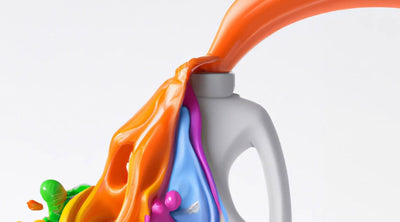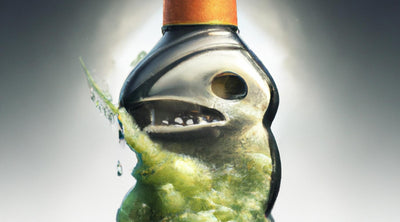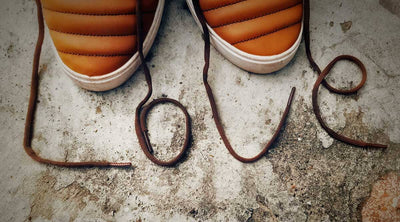Why Harder now is Better than Detrimental Later
desember 23, 2020Many countries, as we’ve seen in our last article, are far from where they need to be for implementing modern policies that protect our planet.✅ Some are making a lot of progress, but even they have a long way to go.
This means the sustainable initiatives that businesses are currently implementing are almost completely up to them, with of course the pressure brought on by consumers. A common resistance to these changes is: if we aren’t required to make these changes, and these changes would make things slightly harder or more costly than not, then why make them?🤷🏻♂️
♻️There are many reasons behind making a business more sustainable: the obvious being it helps the planet and people on it, the less obvious being it has potential to actually save a company money while improving its image.
But the most important one is, that if businesses want to be in business seven generations down the line, we don’t really have a choice not to. Sure, these changes cost money, time, and other valuable resources up front.💰 But these costs up front do not compare to the costs we would have to pay down the line if we put these changes off until the last minute.
“Last minute” tends to always come quicker than we think

🛢Resource scarcity and 🌲biodiversity loss always appear to be diminishing rather steadily, giving us the ability to guess the longest time we can take before we have to change how to live our lives, run our business, or our communities. But instead of things being linear, they are more so exponential because our loss increases as does our population and economies grow. That is until we reach a tipping point, which is rather unpredictable.
With several aspects of the earth able to change in an instant, this will completely change how businesses are run, what resources we’ll have access to, and because of this we must become more resilient. Resilient to a changing climate, and resilient to limited resources, or a complete lack of the current ones.🚫
We can’t help but imagine a place like 🗿Easter island, who’s climate and 🌴resources provided great living conditions. But when a population took advantage of nature by over harvesting palm trees for the creation of the now iconic easter island statues, the decline most likely seemed gradual until, just like that...it was all over for that island.
📉Similar models are depicted for our current world if we don’t make changes today.
This information can either cripple us with fear if that’s what we choose, or it can be a motivation to change.💪 This doesn’t just have to apply to the reasons why LastObject strives for better, it can apply to all companies, communities, or even individuals. We are all a part of it.
Sustainable changes pay for themselves and then some

Okay, forget about the dreariness of complete biodiversity collapse, and let’s talk money. Or more generally, costs.
By making decisions that help the planet and people, the consumer who cares about these things is going to give you their business instead of the one who isn’t. 📊Consumers are demanding these changes, and are willing to leave or support a business because of it. So, in this sense...businesses have a huge potential to pay for the sustainable changes they’ve made.
📗In Patagonia’s book Let my People go Surfing written by Yvon Chouinard, the founder of Patagonia, he boldly states that with every single sustainable change Patagonia has made it’s costs have either been covered or even turned into a profit. From implementing carpooling and green commute initiatives at the HQ, or implementing hemp as opposed to more water/pesticide intensive cotton for clothing.
As we can see in the case for Patagonia, going green is good for making green. Of course that is just a cherry on top of the differences that are being made.
Waiting for government orders could leave a company scrambling

👩💼Governmental regulation is another one of those things that appears to be changing on a rather gradual level, just over a flat line actually. Government is slow. But that isn’t always the case. Aggressive elements such as climate change or biodiversity loss calls for aggressive policy making. We’ve seen this in the EU’s recent ability to implement plastic policies in such a short window.
This is great for getting things done, especially when something like climate change doesn't give us much time to act. 😰But it can also leave businesses scrambling, especially those who haven’t been already keeping up with consumer demands or market trends.
Not all businesses are nimble enough to make it through such aggressive changes. Whether they are brought on by governments, nature, or consumer demands. We would hope that everyone's livelihoods and companies can last forever, but if they aren’t designed to...then they simply will not.⌛️

🗺Businesses all over the world, with or without pressure from the government, are changing. It’s decided, our current behaviour is harming the planet, and companies are starting to carry the torch to implement the quickest and most effective changes we’ve seen yet.
We don’t have to make the changes we are making, we want to. We don’t have to be spearheading sustainable initiatives and developing solutions to wasteful problems, we are honored to.😊
Being a part of the solution is difficult now, but easy when we think of the reasons. Putting off change until we absolutely have to may be easy now, but by doing so businesses are piling on more to do lists that will have to be completed all at once...as opposed to gradually right now. 🍀
MORE Sustainability 101 ARTICLES View all ›
Ready to make
the switch?
- Powerful Cleaning
- Dissolves Easily
- Skin-Friendly
- Eco-Friendly
- No Mess














